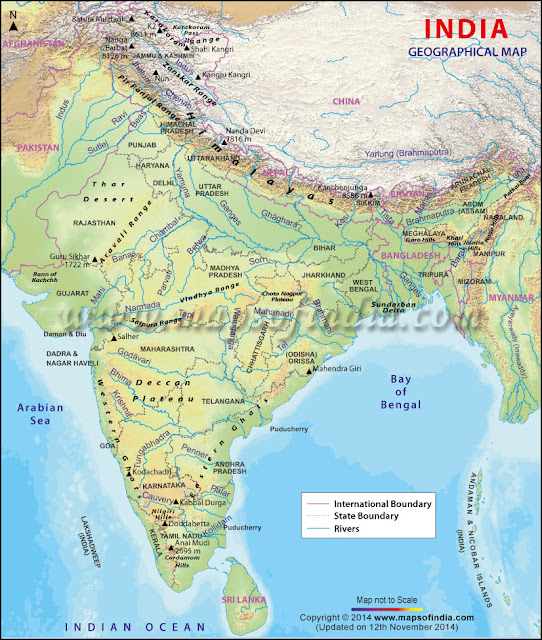Inter-State Water Disputes
Who of the following establishes a River Board on the request of the State government?
(A) The President
(B) The Central government
(C) The Prime Minister
(D) The Supreme Court
✍(B) The Central government
🔰Inter-State Water Disputes🔰
🌸All the major river basins and some among the medium river basins are of inter-state nature. As the development of projects by one State on an inter-state river may affect the interests of other basin States, inter-state differences arise with regard to use, distribution and control of waters of inter-state river basins.
🌼Constitutional Provisions and Central Water Laws🌼
🍁Article 246 of the Constitution demarcated the powers of the Union and the State by classifying their powers into 3 lists, namely Union List, State List and Concurrent List. The constitution of India has provided for the division of powers between the central and the state governments.
🔅Both the Union List and the State list, deal with the provisions of water.
▪Entry No. 56 of Union List : "Regulation and development of inter-State rivers and river valleys to the extent to which such regulation and development under the control of the Union is declared by Parliament by law to be expedient in the public interest."
▪Entry No. 17 of State List : "Water that is to say, water supplies, irrigation and canals, drainage and embankments, water storage and water power subject to the provisions of Entry 56 of the Union list."
🍁Accordingly, subject of ‘Water’ is a matter at Entry 17 of State List. However, this Entry is subject to the provisions of ‘Regulation and Development of Inter-State Rivers and River Valleys’ at Entry 56 of the Union List.
🌻Article 262 of the Constitution provides for the adjudication of inter-state water disputes.
🌻Article 262 makes two provisions:
1. Parliament may by law provide for the adjudication of any dispute or complaint with respect to the use, distribution and control of waters of any inter-state river and river valley.
2. Parliament may also provide that neither the Supreme Court nor any other court is to exercise jurisdiction in respect of any such dispute or complaint.
🌻Under this provision, the Parliament has enacted two laws:
1. The River Boards Act, 1956
2. The Inter-State Water Disputes Act, 1956.
🌼The River Boards Act, 1956🌼
☘It provides for the establishment of river boards for the regulation and development of inter-state river and river valleys.
☘A river board is established by the Central government on the request of the state governments concerned to advise them.
🌼The Inter-State Water Disputes Act, 1956🌼
🌿It empowers the Central government to set up an ad hoc tribunal for the adjudication of a dispute between two or more states in relation to the waters of an inter-state river or river valley.
🌿The decision of the tribunal would be final and binding on the parties to the dispute. Neither the Supreme Court nor any other court is to have jurisdiction in respect of any water dispute which may be referred to such a tribunal under this Act.
📝Till date, the Central government has set up nine (09) inter-state water dispute tribunals.

Comments
Post a Comment